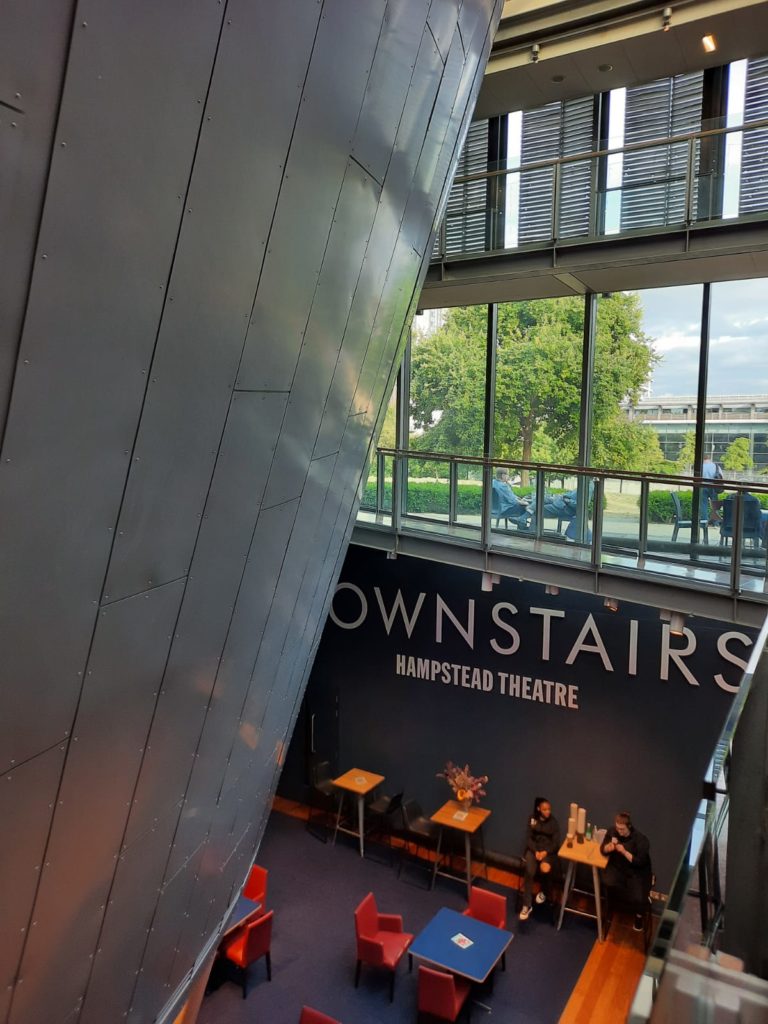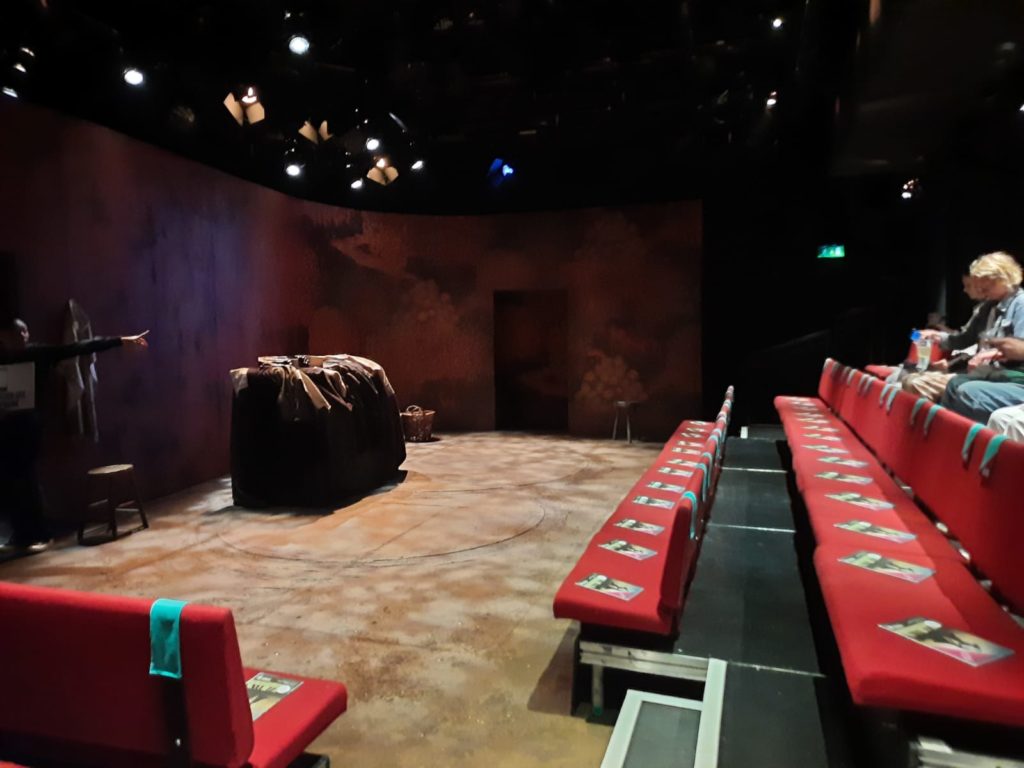Folk – Hampstead Theatre, London
A review of Folk at London’s Hampstead Theatre. A ‘play with songs’ that goes to the heart of Englishness, tradition and preservation.

Folk
How fortunate that I was able to get a return ticket for Folk! I missed its first run as part of Hampstead Theatre‘s winter season, and initially missed out on tickets for its return. But a bit of persistence, and I found myself amongst the audience for Nell Leyshon’s ‘play with songs’ this week.
Folk is an interesting play, a deliberately fictionalised version of true events. Cecil Sharp did indeed collect thousands of English folk songs, beginning in Somerset in 1903. He collected many from half sisters Louie (Louisa) Hooper and Lucy White. Their mother was really a renowned local singer. And the first song Sharp collected was The Seeds of Love, from the wonderfully named John England. But the timelines and relationships between these individuals are the subject of artistic license, in order to create a narrative and draw out key themes.
It’s quite a simple play at heart, and yet very effective. Sharp’s initial quest is for inspiration to write his own music, like Greig drawing on Norwegian folk songs. Yet everyone knows that England is ‘das Land ohne Musik’, or ‘the land without music’, its folk songs already gone. Or are they? Through his encounters with Louie, Sharp is able to realise half of his dream. He collects a number of folk songs, in the process providing Louie with her first ever opportunity to discuss music with someone who loves it as much as she does. He’s not, however, able to revive English classical composition singlehandedly – he’s frankly not got the talent for it. And when Louie finds out how he has ‘pinned down’ her songs by arranging them into compositions for pianists and trained singers, he is suitably admonished.

Back Once More In England’s Green And Pleasant Land
There was a really interesting parallel for me between Folk and Jez Butterworth’s Jerusalem, which I saw again recently at the Apollo Theatre. Both draw on the relative lack of connection of the English from their traditional culture. In both, it’s a source of anxiety: that something important is being/has been lost. But yet in both, we find that the core of it is still there, even if the outward manifestations change. There’s something almost Freudian about it, a deep-seated neurosis about origins and connections.
Other than this common thread, Folk is of course a very different play. It’s a four-hander, with excellent performances from all cast members. Mariam Haque as Louie has an emotionally demanding role, juggling grief at her mother’s death with joy (turning to betrayal) at her musical discoveries. Haque’s performance is honest and vulnerable, preventing the character of country girl who turns out to be wiser than the city folk from falling too far into cliche. Sasha Frost as her flirty and practical sister Lucy balances out the sisterly dynamic well.
And Simon Robson as Cecil Sharp captures the character well. Leyshon has deliberately not addressed the real Sharp’s documented racism and misogynism, as a divergence from the story she wanted to tell. What Leyshon and Robson do capture is the dichotomy in Sharp’s character: a self-assured man with the arrogance to publish folk songs as if he owned them, yet the ability to connect with people from all walks of life in a way that most of his counterparts would not have done.
The direction by Roxana Silbert is nicely paced while also leaving space for the story. And I loved the movement direction of traditional country dances by Ayse Tashkiran. If I did wish for a few more songs in the second half, it’s only because I was enjoying them so much. This is a lovely little play, well deserving of its Olivier award nomination.
Salterton Arts Review’s rating: 4/5
Folk on until 30 July 2022
Trending
If you see this after your page is loaded completely, leafletJS files are missing.

